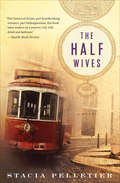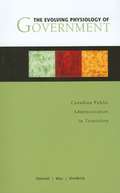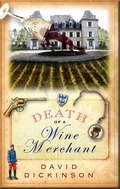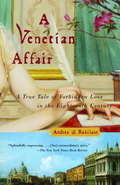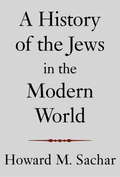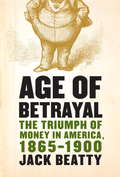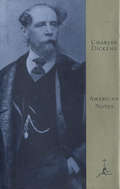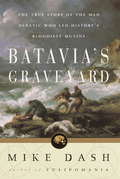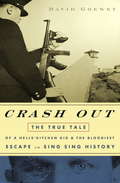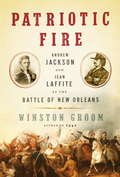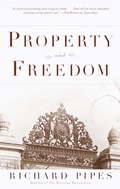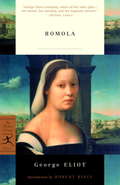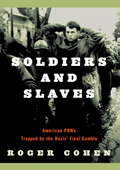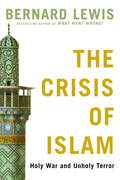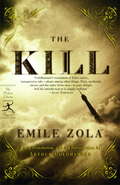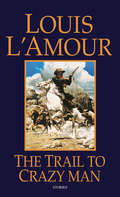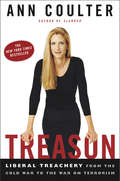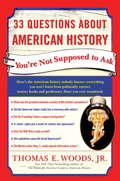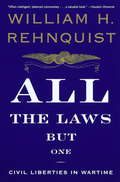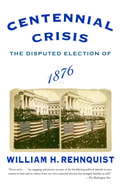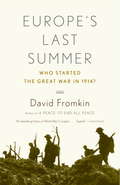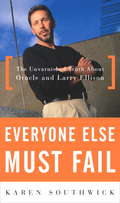- Table View
- List View
Talking Books: Pioneering and Beyond
by Marilyn Lundell MajeskaAlthough libraries had been finding ways to serve blind patrons as early as the late nineteenth century, the passage of the Pratt-Smoot Act in 1931 was a game-changer. Congress appropriated funds to provide books for blind adults, and the National Library Service for the Blind and Physically Handicapped was established. The five decades after Pratt-Smoot saw many technological developments in recording machines and techniques, some coming hand in hand with innovations in the music industry: from record players, to reel-to-reel tapes, to cassette players. Inevitably, the "talking books" program would always be a compromise between the best possible product and the limitations of what was practical and economically feasible. Author Majeska synthesizes information from interviews and old files to compile a detailed history of talking books from 1932 to 1988--before computers changed the whole scene.
The Half Wives: A Novel
by Stacia Pelletier&“Part historical fiction, part heartbreaking romance, part bildungsroman, this book takes readers on a journey rich with detail and darkness&” (Seattle Book Review). Henry Plageman is a master secret-keeper. A former Lutheran minister, he lost his faith after losing his infant son, Jack, many years ago; his wife, Marilyn, remains consumed by grief. But Henry has another life—another woman and another child—unknown to Marilyn. His lover, Lucy, yearns for a man she can be with openly while their eight-year-old daughter, Blue, tries to make sense of her parents&’ fractured lives The Half Wives follows these interconnected characters through one momentous day, May 22, 1897, the sixteenth anniversary of Jack&’s birth. Marilyn distracts herself with charity work. Henry needs to talk his way out of the police station, where he has spent the night for disorderly conduct. Lucy must rescue the intrepid Blue, who has fallen in a saltwater well. Before long, the four will be drawn to the same destination—the city cemetery on the outskirts of San Francisco—where the collision of lives and secrets leaves no one unaltered. A Finalist for the Townsend Prize &“The developing San Francisco of the 1890s becomes a rich background for these three as they play out their messy, somber, intertwined fates.&” —The New York Times Book Review &“A poignant, sometimes heart-rending, beautifully crafted, always gripping tale of loss and love, and the human need to try to set things right.&” —Kevin Baker, author of The Big Crowd &“Pelletier&’s writing is moving and enthralling . . . [She] keeps readers hooked right up to the book&’s satisfying conclusion.&” —Publishers Weekly
سيرة الأميرة ذات الهمة وولدها عبدالوهاب - جزء1
by ليس موجودقال الراوي: ومن جملة من خرج إليه عمرو بن عبد الله وهو يقول ادع لنا يا أخينا في الله، وأما أبا محمد البطال لما رأى الناس يهرعون سأل عن ذلك، فقال له بعض الإخوان فاز بالسعادة من فاز هذا القاضي قد قدم من أرض الحجاز فسار أبي محمد البطال من جملة الناس إلى أن وصل إليه، فرآهم يقبلون قدميه والشاطر من يصل إليه، وهو يبكي فما زال البطال يضحك إلى أن قرب منه، ووقعت عينه عليه فقال عقبة يا ولد يا بطال العاقبة إليك نزور البيت العتيق، وتزول عنك الذنوب، ويصل إليك التوفيق وتعاين ذاك المكان تحقيق، فقال البطال والله يا قاضي ما أنا إلا زرت البيت الذي كنت فيه، لكن ما غطست في جرن البركة الذي أنت غطست فيه، فقال عقبة وقد عدم رشاده وخفق من ذلك فؤاده، ويلك يا بطال إيش هذا الكلام وهذا الفضول الذي تقوله، وإذا بالأمير عمرو بن عبد الله قد وصل، فقال يا ولدي يا عمرو والله يوصل إليك ما دعوت لك في صحيفتك من الدعاء في البيت الحرام وزمزم والمقام، ثم ركب على ظهر بغلته بعد السلام والناس من وراه منقلبة، وكان البطال لما وقع بالقنديل قدمه للأمير عبد الوهاب، ففرح به فرحًا شديدًا ما عليه من مزيد، وكان البطال كره المقام بين بني سليم، وقال وحق المصطفى لا أقمت في مكان فيه عقبة بعد أن رأيت بعيني ما فعله، ولا بد أن أكون لهلاكه سبب، وأنحره كما أنحر الغنم، ثم طلع إلى قلعة الكوكب وأطلع الأميرة على القنديل، وقال هذا الذي تأسفتي عليه، وطلبتيه من الملك العلام، بأن يكون معلق في البيت الحرام، ثم حدثهم بحديث عقبة وما جرى له فقالت الأميرة لا حول ولا قوة إلا بالله العلي العظيم، وصعب على الأمير عبد الوهاب وقال للبطال على ماذا عولت أن تفعل، فقال انتقل من عندكم وأجعل معولي على الله، ثم عليكم وأنحر هذا اللعين فإني سمعته يوعد كلب الروم بهلاكك ويجعل بلاد الإسلام للروم والكفرة اللئام، ويملك البيت الحرام فقال عبد الوهاب ساءت ظنونه وأعماله وقطعت أوصاله ولا بد لي إن شاء الله أن أصلبه على باب الذهب الذي تنصر فيه، ولو احتمى بكل من كفر، وما قدر هذا الكلب إلا كلب حتى يذكر بيت الله الحرام، وزمزم والمقام، وأنت أخي من الدنيا والآخرة، لك ما لي وعليك ما عليَّ، ثم إنه أمر غلمانه أنهم ينقلون أسباب البطال من ملطية إلى قلعة الكوكب، وكانت ثلاثة جوار روميات وعشرة غلمان والكل علمهم الاحتيال والخداع، وجرأهم على الأهوال وأقام البطال في قلعة الكوكب وأعلم الأمراء بإسلام مارس ودارس، وأختهم أرمانوسة، ففرحوا بذلك فرحًا شديدًا ما عليه من مزيد، وقالت الأميرة سبحان الله من أيقظ هؤلاء من سنة الغفلة وأضل عقبة من علمه وفضله، ولكن الله يفعل ما يشاء ويحكم ما يريد، ولم يزل البطال في قلعة الكوكب إلى أن سمع بوصول عقبة، فقال لا بد لي من الخروج إليه، ثم إنه خرج كما ذكرنا وكلم عقبة بما وصفناه، وعاد البطال إلى قلعة الكوكب وأعلم الأمير بقدوم عقبة، وكيف وصل من الحجاز، فقالت الأميرة إن قتله عند الله أعظم أجر من فتح القسطنطينية، لأنه يلعب بالأديان ويكفر بالرحمن، ثم أقاموا إلى أن أصبح بالصباح، وإذا برسول الأمير عمرو وصل إليهم يطلب الأمير أبو محمد البطال، وأيضًا يطلب القنديل ويأخذ من البطال حق القصاص بما يتكلم في حق عقبة ويقابله بما يستحقه، وأما القنديل يوصله إلى الأمام فإنه ولي الأحكام. قال الراوي: وكان السبب في ذلك الملعون عقبة لأنه لما وصل إلى ملطية وعلم أن البطال شنع عليه بهذه الأقوال الرديئة، وأيضًا بالغ في تشديد هذه القضية، وأنه اطلع على تنصره فقال أنا اعلم أن هذا الصبي يكشف سري بما رأى مني، فلم ينم تلك الليلة حتى ملأ قلب عمرو بن عبد الله، وقال له يا ولدي أنت هاهنا ملك العربان وأمير الثغور في كل مكان، وما نريد يتم أمر إلا ونعلم به الخليفة أمير المؤمنين، وإلا إن دمت هكذا انتقصت منزلتك عند الأمراء وعند الخاص والعام، وأيضًا تستطيل بني عامر وبني كلاب على بني سليم، وما ينبغي أن تكون بني سليم تحت الذل والضيع، وينبغي أنك ترسل تطلب القنديل لأن البطال دخل إلى القسطنطينية وسرق مالاً جزيلاً، ومن جملته ذلك القنديل وهو من الصواب إنك تطلبه وتطلب أيضًا البطال حتى أنه يقوم إليَّ ذليل، وأقبح بما قال في حقي لأنه رماني بالزور والبهتان، وتكلم في حقي بالكفر والطغيان، وسوف يكون لهلاكه سبب، وإذا لم نقيم ناموس الإمارة وإلا حلت بنا كل الخسارة.
عنترة بن شداد الجزء الأول
by مجهولوكان بسطام قويًّا قلبه، وأراد أن يطلق رأس الجواد، فما مكنه عنتر بن شداد، بل أدركه وزعق فيه وطعنه بعقب الرمح فألقاه على وجه الأرض، وقال لأخيه شيبوب: شد كتافه حتى ننظر ما يجري بيننا وبين القادمين، فنظر نجاد إلى هذا الحال، فقال لمن معه: يا ويلكم، خذا هذا الأسود ابن ملكنا بسطام وشداه في الاعتقال، وإني أقول إنه ما قدر عليه إلا من خوفه من هذه الفرقة العبسية التي لحقت بصاحبها، حتى تعينه على هذه القضية، كما لحقنا نحن صاحبنا فدونكم وإياهم، فارفعوهم على أسنة الرماح وأنا أمزق جسد هذا الأسود، وأطلق لمولانا السراح لأني أقول: إن هذا الفارس هو عنتر، الذي قد سار بسطام ليأتي برأسه، ثم إنه حمل يطلب عنتر في خمسين فارسا، وحملت بقية الثلاثمائة فارس على عمارة ورفقته مثل السود القناعس، وقد قلوا في أعينهم وداروا بهم وتفرقوا كراديس ومواكب، فعند ذلك لزم بنو عبس القتال خوفًا من المهالك، فانظر أيها السامع إلى هذه الأشياء التي تحير العقول، فإن عمارة قد أتى يقاتل عنتر فصار معينا له بغير علمه واختياره، واحتاج أن يقاتل معه، ويخلص نفسه فزعا من العطب، ولو أمكنه الهروب من ذلك لهرب، ولكن ما قدر على ذلك لأن الأعداء قد أحدقت بهم من سائر الجهات والممالك، فقاتل وبذل المجهود وتزاعقت عليهم الفرسان مثل الأسود، وتواثبت الشجعان مثل الفهود، واقشعرت الجلود، وقدحت حوافر الخيل النار في الجلمود، وخيم الغبار على رأسهم حتى بقي مثل الرواقي الممدود، وفاضت الدموع على الخدود، وقدت الصوارم الهامات والقدود، وخفقت الرايات والبنود، وتلهجت في الأحشاء نار الحقود، وعادت وجوه الأبطال سود، من كثرة الغبار الممدود، ومما جرى عليها من نقض المواثيق والعهود، وشربت الأودية من أدمية الفرسان والكبود، وخسرت بنو زياد في ذلك اليوم المشهود، ورأت مقام عنتر في ذلك الوقت محمود، وأيقن عمارة أنه هالك من بين أهله ومفقود، وكاد أن يموت من الحسد، وعاد متنغصا مكمود، ثم إنه افتقد أصحابه فوجدهم قد فقد منهم خمسون فارسا، والباقون أشرفوا على الهلاك، فعندها قال عمارة: النجاة، ثم إنه لوى عنان جواده وولى هاربا، فتبعه عروة ومن بقي من رجاله، وهم لا يصدقون بالنجاة.
The Evolving Physiology of Government: Canadian Public Administration in Transition (Governance Series)
by O. P. Dwivedi Tim A. Mau Byron M. SheldrickCanadian public administration has provided a rich ground for examining the changing nature of the state. Currents of political change have rippled through the administration of the public sector, often producing significant alterations in our understanding of how best to organize and administer public services. This volume brings together some of the leading Canadian and international scholars of public administration to reflect on these changes and their significance. Providing a historical perspective on public administration in Canada, the volume examines the shift from a traditional model of administration to newer forms such as new public management and governance, and explores current debates and the place of Canadian public administration within a broader comparative perspective.
Death of a Wine Merchant
by David DickinsonAn unwelcome guest - Death - gatecrashes a society wedding and Lord Francis Powerscourt is summoned by his barrister friend, Charles Augustus Pugh, to investigate this most singular case of murder in the Fens. The dead man is Randolph Colville, successful wine merchant and father of the groom. The murderer would appear to be his brother Cosmo, found in the same room with a gun in his hand. But is this simply a modern-day version of Cain and Abel, or is there more to it than that? Cosmo isn't speaking and time is running out for him for he has an appointment with the gallows in two weeks. Francis has to act fast and sets out to discover all he can about the dead man - and his brother. Cosmo's silence is bothering him for it can only be for two reasons; either he is protecting a woman - or a family scandal. His investigations take him to the vineyards and towns of Burgundy, where he uncovers evidence of serious malpractise in the Colville wine trade, bitter rivalry with a London-based competitor and a disgruntled ex-employee bent on revenge. But there is another secret - more terrible and shocking than anything gone on before - which finally reveals the motive for the untimely death of a wine merchant. Praise for David Dickinson:'Splendid entertainment' Publishers Weekly'A leisurely period whodunit with Dickinson's customary historical tidbits and patches of local color, swathed in an appealing Victorian narrative' Kirkus Reviews'Detective fiction in the grand style' James Naughtie'A cracking yarn, beguilingly real from start to finish' Peter Snow
A Venetian Affair
by Andrea Di RobilantIn the waning days of Venice’s glory in the mid-1700s, Andrea Memmo was scion to one the city’s oldest patrician families. At the age of twenty-four he fell passionately in love with sixteen-year-old Giustiniana Wynne, the beautiful, illegitimate daughter of a Venetian mother and British father. Because of their dramatically different positions in society, they could not marry. And Giustiniana’s mother, afraid that an affair would ruin her daughter’s chances to form a more suitable union, forbade them to see each other. Her prohibition only fueled their desire and so began their torrid, secret seven-year-affair, enlisting the aid of a few intimates and servants (willing to risk their own positions) to shuttle love letters back and forth and to help facilitate their clandestine meetings. Eventually, Giustiniana found herself pregnant and she turned for help to the infamous Casanova–himself infatuated with her. Two and half centuries later, the unbelievable story of this star-crossed couple is told in a breathtaking narrative, re-created in part from the passionate, clandestine letters Andrea and Giustiniana wrote to each other.
A History of the Jews in the Modern World
by Howard M. SacharHistorian Sachar writes of the history of the Jews over the past 400 years, from Western Europe's 17th century age of mercantilism, to the 21st century struggle for Soviet Jewry. While he addresses the rise of Zionism and the birth of the State of Israel, he does not provide a comprehensive examination of the independent nation, explaining that it deserves its own separate treatment. He includes less common subjects such as the Sephardic-Oriental diaspora, and the Jews of Africa and of Moslem regions, and concludes with a prognosis for the 21st century. Annotation ©2005 Book News, Inc. , Portland, OR (booknews. com)
Age of Betrayal: The Triumph Of Money In America, 1865-1900
by Jack BeattyA senior editor at The Atlantic Monthly, Beatty tells how, having redeemed democracy during the Civil War, America betrayed it during the Gilded Age. That time, he says, saw the birth of the plutocracy and inequality that rules the country a century later. Annotation ©2007 Book News, Inc. , Portland, OR (booknews. com)
American Notes
by Charles DickensWhen Charles Dickens set out for America in 1842 he was the most famous man of his day to travel there - curious about the revolutionary new civilization that had captured the English imagination. His frank and often humorous descriptions cover everything from his comically wretched sea voyage to his sheer astonishment at the magnificence of the Niagara Falls, while he also visited hospitals, prisons and law courts and found them exemplary. But Dickens's opinion of America as a land ruled by money, partly built on slavery, with a corrupt press and unsavoury manners, provoked a hostile reaction on both sides of the Atlantic. American Notes is an illuminating account of a great writer's revelatory encounter with the New World.
Batavia's Graveyard: The True Story of the Mad Heretic Who Led History's Bloodiest Meeting
by Mike DashFrom the bestselling author of Tulipomania comes Batavia’s Graveyard, the spellbinding true story of mutiny, shipwreck, murder, and survival.It was the autumn of 1628, and the Batavia, the Dutch East India Company’s flagship, was loaded with a king’s ransom in gold, silver, and gems for her maiden voyage to Java. The Batavia was the pride of the Company’s fleet, a tangible symbol of the world’s richest and most powerful commercial monopoly. She set sail with great fanfare, but the Batavia and her gold would never reach Java, for the Company had also sent along a new employee, Jeronimus Corneliszoon, a bankrupt and disgraced man who possessed disarming charisma and dangerously heretical ideas. With the help of a few disgruntled sailors, Jeronimus soon sparked a mutiny that seemed certain to succeed—but for one unplanned event: In the dark morning hours of June 3, the Batavia smashed through a coral reef and ran aground on a small chain of islands near Australia. The commander of the ship and the skipper evaded the mutineers by escaping in a tiny lifeboat and setting a course for Java—some 1,800 miles north—to summon help. Nearly all of the passengers survived the wreck and found themselves trapped on a bleak coral island without water, food, or shelter. Leaderless, unarmed, and unaware of Jeronimus’s treachery, they were at the mercy of the mutineers.Jeronimus took control almost immediately, preaching his own twisted version of heresy he’d learned in Holland’s secret Anabaptist societies. More than 100 people died at his command in the months that followed. Before long, an all-out war erupted between the mutineers and a small group of soldiers led by Wiebbe Hayes, the one man brave enough to challenge Jeronimus’s band of butchers.Unluckily for the mutineers, the Batavia’s commander had raised the alarm in Java, and at the height of the violence the Company’s gunboats sailed over the horizon. Jeronimus and his mutineers would meet an end almost as gruesome as that of the innocents whose blood had run on the small island they called Batavia’s Graveyard.Impeccably researched and beautifully written, Batavia’s Graveyard is the next classic of narrative nonfiction, the book that secures Mike Dash’s place as one of the finest writers of the genre.
Crash Out
by David GoeweyThe enthralling and evocative story of tough Depression-era bandits who vowed to make something of themselves, even if that meant defying the stone walls of America’s most infamous prison, by a writer who grew up in Sing Sing’s shadow. During an era of never-ending breadlines and corrupt cops, no place churned out budding crooks more efficiently than Hell’s Kitchen. Neighborhood loyalties bonded gangs of immigrant sons who were looking for a way out of 1930s New York, and waterfront kids like Whitey Riordan paid the bills with small-time hustling. But when enterprising crook Patches Waters invited Whitey into the Shopping Bag Gang, Whitey jumped at the big score. Bold black headlines announced the group’s string of successful heists, but the gravy train abruptly halted in 1939 when someone squealed and police captured most of the gang. Patches and Whitey were sent up the river to Sing Sing. Westside connections couldn’t help much there, in the infamous Hudson River prison that had housed convicts for more than a century. In Sing Sing the boys had to answer to veteran warden Lewis Lawes, a revolutionary reformer who preferred trust and rehabilitation to old standbys like the lash and the yoke. Progressive indeed, but nothing changed the fact that Whitey and Patches, along with more than 2,800 other men, faced a future of endless days in a cage of limestone, cement, and steel. Perhaps inevitably, their thoughts turned to escape. A string of well-publicized jailhouse riots and breakouts captured the country’s interest in the 1930s, and though prisons kept stepping up security, convicts continued to crash out. When Patches encountered an old cellblock crony who had stumbled upon a way out, he pieced together a daring escape plot involving purloined guns, counterfeit keys, precision timing, a complex network of outside accomplices, and the kind of outsize bravado that would have made Dillinger proud. Unable to resist the thought of freedom, Whitey signed on. On Easter Sunday 1941, the three embarked upon the most sensational breakout in the prison’s history. Leaving four men dead and indelibly staining the reputation of the nation’s most famous warden, the Westside boys transcended their wildest dreams, only to find themselves backed to the edge of a wide, dark river. Meticulously researched and beautifully written,Crash Outis a gritty, page-turning saga that reveals how the career of one resilient hustler can illuminate a sliver of Americana. A riveting account of the boldest escape in Sing Sing history and the gangster culture that birthed the defiant bandits,Crash Outis a gripping historical epic set against the fascinating backdrop of Depression-era New York. From the Hardcover edition.
Patriotic Fire: Andrew Jackson And Jean Laffite At The Battle Of New Orleans (Playaway Adult Nonfiction Ser.)
by Winston GroomGroom recounts the Battle of New Orleans, in which Andrew Jackson joined French pirate Jean Lafitte to fight against the British invasion of the city in December of 1814. He discusses what led up to the battle, its stages, Jackson's and the British strategy, and how the British tried to recruit Lafitte. Groom is the author of 13 other books on historical and fictional subjects, including Forrest Gump, and was nominated for a 1984 Pulitzer Prize. Annotation ©2006 Book News, Inc. , Portland, OR (booknews. com)
Property and Freedom
by Richard PipesProperty, asserts Richard Pipes, is an indispensable ingredient not only of economic progress but also of liberty and the rule of law. In his new book, the Harvard scholar demonstrates how, throughout history, private ownership has served as a barrier to the power of the state, enabling the Western world to evolve enduring democratic institutions. He traces the development of private property, beginning with ancient Greece and Rome, where property rights in the modern sense first made their appearance. He explains how notions of ownership matured in late medieval times with the great expansion of commerce and the growth of cities. He shows how England, as the first country to treat land as a commodity and to develop a robust defense of property rights, also became the first to institute a parliamentary government capable of restraining the powers of royalty. In pre-nineteenth-century Russia, on the other hand, the absence of private land ownership deprived its citizens of the leverage to limit the authority of their tsars. Pipes describes the attitudes toward property of twentieth-century totalitarian states and points out that in the United States the protection of private property, rooted in the principles of the Founding Fathers, has been a major contributor to the commonweal. However, he warns that contemporary trends in the treatment of property--in a century that, he suggests, has been unfavorable to the institution--threaten to undermine the rights of citizens. And he makes clear why he believes that excessive interference by government, even when intended to promote the "common good," could lead to a diminution of freedom.
Romola
by George EliotOne of George Eliot's seven classic novels. She is best known for Middlemarch, Silas Marner, and The Mill on the Floss. According to Wikipedia: "Mary Ann (Marian) Evans (22 November 1819 â " 22 December 1880), better known by her pen name George Eliot, was an English novelist. She was one of the leading writers of the Victorian era. Her novels, largely set in provincial England, are well known for their realism and psychological perspicacity. She used a male pen name, she said, to ensure that her works were taken seriously. Female authors published freely under their own names, but Eliot wanted to ensure that she was not seen as merely a writer of romances. An additional factor may have been a desire to shield her private life from public scrutiny and to prevent scandals attending her relationship with the married George Henry Lewes. "
Soldiers and Slaves
by Roger CohenIn February 1945, 350 American POWs captured earlier at the Battle of the Bulge or elsewhere in Europe were singled out by the Nazis because they were Jews or were thought to resemble Jews. They were transported in cattle cars to Berga, a concentration camp in eastern Germany, and put to work as slave laborers, mining tunnels for a planned underground synthetic-fuel factory. This was the only incident of its kind during World War II. Starved and brutalized, the GIs were denied their rights as prisoners of war, their ordeal culminating in a death march that was halted by liberation near the Czech border. Twenty percent of these soldiers–more than seventy of them–perished. After t_he war, Berga was virtually forgotten, partly because it fell under Soviet domination and partly because America’s Cold War priorities quickly changed, and the experiences of these Americans were buried. Now, for the first time, their story is told in all its blistering detail. This is the story of hell in a small place over a period of nine weeks, at a time when Hitler’s Reich was crumbling but its killing machine still churned. It is a tale of madness and heroism, and of the failure to deliver justice for what the Nazis did to these Americans. Among those involved: William Shapiro, a young medic from the Bronx, hardened in Normandy battles but, as a prisoner, unable to help the Nazis’ wasted slaves, whose bodies became as insubstantial as ghosts; Hans Kasten, a defiant German-American who enraged his Nazi captors by demanding, in vain, that his fellow U. S. prisoners be treated with humanity, thus committing the unpardonable sin of betraying his German roots; Morton Goldstein, a garrulous GI from New Jersey, shot dead by the Nazi in charge of the American prisoners in an incident that would spark intense debate at a postwar trial; and Mordecai Hauer, the orphaned Hungarian Jew who, after surviving Auschwitz, stumbled on the GIs in the midst of the Holocaust at Berga and despaired at the sight of liberators become slaves. Roger Cohen uncovers exactly why the U. S. government did not aggressively prosecute the commandants of Berga, why there was no particular recognition for the POWs and their harsh treatment in the postwar years, and why it took decades for them to receive proper compensation. Soldiers and Slaves is an intimate, intensely dramatic story of war and of a largely forgotten chapter of the Holocaust.
The Crisis of Islam
by Bernard LewisPresident Bush has made it clear that we are engaged in a war against terrorism. But for Usama bin Laden and his followers this is religious war, a war for Islam against infidels, especially the United States, the greatest power in the world of the infidels. In this book Bernard Lewis shows us where the anger and frustration have come from, and the extent to which almost the entire Muslim world is affected by poverty and tyranny. He looks at the influence of extreme Wahhabist doctrines in the Saudi kingdom, where custodianship of Islam's holy places and the revenues of oil have given world-wide impact to what would otherwise have been an extremist fringe in a marginal country. He looks at American double standards, which have long caused Muslim anger. He tells us what the real meaning is of Islamic fundamentalism', jihad' and fatwa', and why the peoples of the Middle East are conscious of history in a way that most Americans find difficult to understand.
The Kill
by Emile ZolaHere is a true publishing event–the first modern translation of a lost masterpiece by one of fiction’s giants. Censored upon publication in 1871, out of print since the 1950s, and untranslated for a century, Zola’sThe Kill(La Curée) emerges as an unheralded classic of naturalism. Second in the author’s twenty-volumeRougon-Macquartsaga, it is a riveting story of family transgression, heedless desire, and societal greed. The incestuous affair of Renée Saccard and her stepson, Maxime, is set against the frenzied speculation of Renée’s financier husband, Aristide, in a Paris becoming a modern metropolis and “the capital of the nineteenth century. ” In the end, setting and story merge in actions that leave a woman’s spirit and a city’s soul ravaged beyond repair. As vividly rendered by Arthur Goldhammer, one of the world’s premier translators from the French,The Killcontains all the qualities of the school of fiction marked, as Henry James wrote, by “infernal intelligence. ” In this new incarnation,The KilljoinsNanaandGerminalon the shelf of Zola classics, works by an immortal author who–explicit, pitiless, wise, and unrelenting–always goes in for the kill.
The Trail to Crazy Man
by Louis L'AmourA word from Louis L'Amour:"Almost forty years ago, when my fiction was being published exclusively in 'pulp' western magazines, I wrote several novel-length stories, which my editors called 'magazine novels'. In creating them, I became so involved with my characters that their lives were still as much a part of me as I was of them long after the issues in which they appeared became collector's items. Pleased as I was about how I brought the characters and their adventures to life in the pages of the magazines, I still wanted the reader to know more about my people and why they did what they did. So, over the years, I revised and expanded these magazine works into fuller-length novels that I published in paperback under other titles."These particular early magazine versions of my books have long been a source of great speculation and curiosity among many of my readers, so much so of late, that I'm now pleased to collect three of them into book form for the first time."I hope you enjoy them."From the Paperback edition.
Treason: Liberal Treachery from the Cold War to the War on Terrorism
by Ann Coulter“Liberals’ loyalty to the United States is off-limits as a subject of political debate. Why is the relative patriotism of the two parties the only issue that is out of bounds for rational discussion?”In a stunning follow-up to her number one bestseller Slander, leading conservative pundit Ann Coulter contends that liberals have been wrong on every foreign policy issue, from the fight against Communism at home and abroad, the Nixon and the Clinton presidencies, and the struggle with the Soviet empire right up to today’s war on terrorism. “Liberals have a preternatural gift for always striking a position on the side of treason,” says Coulter. “Everyone says liberals love America, too. No, they don’t.” From Truman to Kennedy to Carter to Clinton, America has contained, appeased, and retreated, often sacrificing America’s best interests and security. With the fate of the world in the balance, liberals should leave the defense of the nation to conservatives.Reexamining the sixty-year history of the Cold War and beyond—including the career of Senator Joseph McCarthy, the Whittaker Chambers–Alger Hiss affair, Ronald Reagan’s challenge to Mikhail Gorbachev to “tear down this wall,” the Gulf War, and our present war on terrorism—Coulter reveals how liberals have been horribly wrong in all their political analyses and policy prescriptions. McCarthy, exonerated by the Venona Papers if not before, was basically right about Soviet agents working for the U.S. government. Hiss turned out to be a high-ranking Soviet spy (who consulted Roosevelt at Yalta). Reagan, ridiculed throughout his presidency, ended up winning the Cold War. And George W. Bush, also an object of ridicule, has performed exceptionally in responding to America’s newest threats at home and abroad.Coulter, who in Slander exposed a liberal bias in today’s media, also examines how history, especially in the latter half of the twentieth century, has been written by liberals and, therefore, distorted by their perspective. Far from being irrelevant today, her clearheaded and piercing view of what we’ve been through informs us perfectly for challenges today and in the future. With Slander, Ann Coulter became the most recognized and talked-about conservative intellectual of the year. Treason, in many ways an even more controversial and prescient book, will ignite impassioned political debate at one of the most crucial moments in our history.
33 Questions About American History You're Not Supposed to Ask
by Thomas E. Woods Jr.Guess what? The Indians didn’t save the Pilgrims from starvation by teaching them to grow corn. Thomas Jefferson thought states’ rights—an idea reviled today—were even more important than the Constitution’s checks and balances. The “Wild” West was more peaceful and a lot safer than most modern cities. And the biggest scandal of the Clinton years didn’t involve an intern in a blue dress. Surprised? Don’t be. In America, where history is riddled with misrepresentations, misunderstandings, and flat-out lies about the people and events that have shaped the nation, there’s the history you know and then there’s the truth. In33 Questions About American History You’re Not Supposed to Ask, Thomas E. Woods Jr. , the New York Times bestselling author ofThe Politically Incorrect Guide to American History, sets the record straight with a provocative look at the hidden truths about our nation’s history—the ones that have been buried because they’re too politically incorrect to discuss. Woods draws on real scholarship—as opposed to the myths, platitudes, and slogans so many other “history” books are based on—to ask and answer tough questions about American history, including: - Did the Founding Fathers support immigration? - Was the Civil War all about slavery? - Did the Framers really look to the American Indians as the model for the U. S. political system? - Was the U. S. Constitution meant to be a “living, breathing” document—and does it grant the federal government wide latitude to operateas it pleases? - Did Bill Clinton actually stop a genocide, as we’re told? You’d never know it from the history that’s been handed down to us, but the answer to all those questions is no. Woods’s eye-opening exploration reveals how much has been whitewashed from the historical record, overlooked, and skewed beyond recognition. More informative than your last U. S. history class,33 Questions About American History You’re Not Supposed to Askwill have you wondering just how much about your nation’s past you haven’t been told. From the Hardcover edition.
All the Laws but One
by William H. RehnquistInAll the Laws but One, William H. Rehnquist, Chief Justice of the United States, provides an insightful and fascinating account of the history of civil liberties during wartime and illuminates the cases where presidents have suspended the law in the name of national security. Abraham Lincoln, champion of freedom and the rights of man, suspended the writ of habeas corpus early in the Civil War--later in the war he also imposed limits upon freedom of speech and the press and demanded that political criminals be tried in military courts. During World War II, the government forced 100,000 U. S. residents of Japanese descent, including many citizens, into detainment camps. Through these and other incidents Chief Justice Rehnquist brilliantly probes the issues at stake in the balance between the national interest and personal freedoms. WithAll the Laws but Onehe significantly enlarges our understanding of how the Supreme Court has interpreted the Constitution during past periods of national crisis--and draws guidelines for how it should do so in the future.
Centennial Crisis
by William H. RehnquistNear midnight on Election Day in November 1876, the returns coming into Republican National headquarters signaled a victory for the Democratic presidential candidate, Samuel J. Tilden. But alert Republican leaders saw that if all the states still doubtful or disputed went for their candidate, Rutherford B. Hayes would be elected. Word was sent out to four southern states that their returns were crucial for a Hayes victory. Thus Chief Justice William Rehnquist begins this remarkable account of one of American's greatest political dramas, a crisis that was not resolved for nearly four months, on March 2, 1877, only two days before Inauguration Day. In his gripping story, Rehnquist tells how each party maneuvered to buy votes in the southern states, how the country slid into Congressional, judicial and public turmoil, and how the creation in January of an Electoral Commission (comprised of five Democrats, five Republicans and five Supreme Court justices) was opposed by both candidates. When that body's deciding vote was cast by Justice Joseph Bradley, public outcry reached such a fever pitch that the presidential swearing-in had to be held on a Sunday in near secrecry. Reaching beyond the history of a contentious election, the Chief Justice describes the political climate and economy of America in the 1870's, packing his narrative with biographical sketches of the central participants and opening a window on events in that decade that have long been overlooked. In a compelling epilogue we learn the occasions when Presidents, ranging from George Washington to Lyndon Johnson, have asked Supreme Court justices to arbitrate disputes, settle treaties or serve on investigating commissions. Almost always the justices were berated and attacked for their decisions. Would it be better for them to have refused the president’s request? The Chief Justice has some surprising answers.
Europe's Last Summer: Who Started the Great War in 1914?
by David FromkinThe Great War not only destroyed the lives of over twenty million soldiers and civilians, it also ushered in a century of huge political and social upheaval, led directly to the Second World War and altered for ever the mechanisms of governments. And yet its causes, both long term and immediate, have continued to be shrouded in mystery. In EUROPE'S LAST SUMMER, David Fromkin reveals a new pattern in the happenings of that fateful July and August, which leads in unexpected directions. Rather than one war, starting with the assassination of Archduke Franz Ferdinand, he sees two conflicts, related but not inseparably linked, whose management drew Europe and the world into what The Economist described as early as 1914 as 'perhaps the greatest tragedy in human history'.
Everyone Else Must Fail: The Unvarnished Truth About Oracle and Larry Ellison
by Karen SouthwickKaren Southwick’s unauthorized account provides the full story of Larry Ellison’s brilliant, controversial career. Ellison’s drive and fierce ambition created Oracle out of the dust and built it into one of America’s great technology companies, but his unpredictable management style keeps it constantly on the edge of both success and disaster. The hostile bid for PeopleSoft is just the most recent example. With one clever strategic move, Larry Ellison threw much of the business software field into play.The saying “It’s not enough that I succeed, everyone else must fail” has been so often used by or associated with Ellison that most people think it originated with him. It’s actually attributed to Genghis Khan, but it’s a dead-on way to describe not only the way Ellison thinks about competitors but the way he runs Oracle. His weapons are not marauding hordes, but Oracle’s possession of database technology that is crucial for keeping mission-critical information flows working at thousands of organizations, corporations, nonprofits, and government agencies. Inside Oracle, Ellison has time and again systematically purged key operating, sales, and marketing people who got too powerful for his comfort. Most notable was Ray Lane, Oracle’s president for nine years, who was widely credited with bringing order out of the chaos that was Oracle in the early nineties and growing it into a ten billion dollar company. Ellison got rid of the one key person who was building confidence with Wall Street, business partners, and customers that Oracle was no longer flying by the seat of its pants and had its act together. Ellison’s mania for absolute control and his inability to coexist with the very lieutenants who bring much-needed stability to the company have brought Oracle to the brink of collapse before, and may well do it again. Ellison is a throwback to an earlier, much more freewheeling version of capitalism, the kind practiced by the nineteenth-century robber barons who ran their companies as private fiefdoms. Larry Ellison is one of the most intriguing and dominant leaders of a major twenty-first-century corporation, and Everyone Else Must Fail raises the question of whether Oracle’s products and the reliance placed in them by so many are too important to be subject to the whims of one man. While giving credit to Ellison’s brilliance and devotion, the book sounds a warning about an ingenious man’s tendency to be his own company’s worst enemy.

